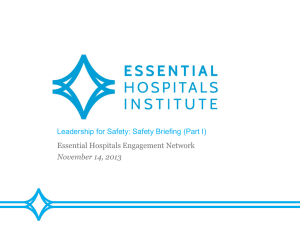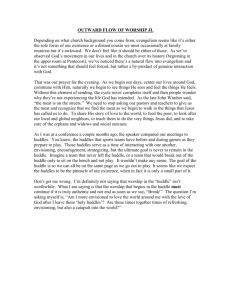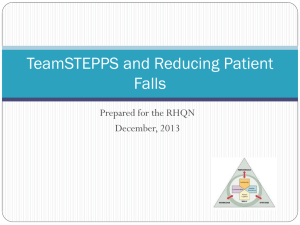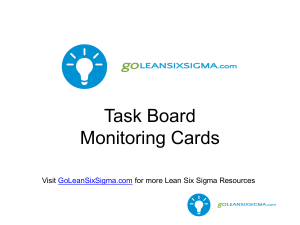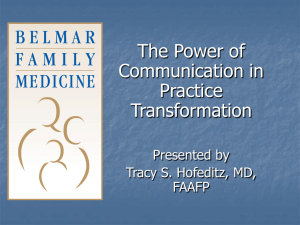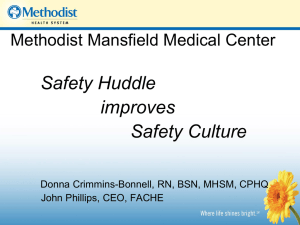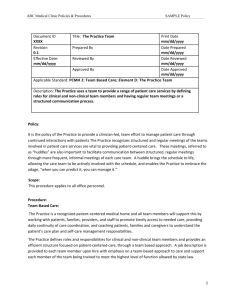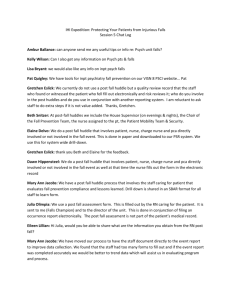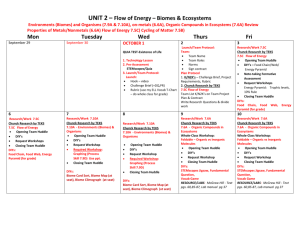Strengthening our Culture of Safety
advertisement
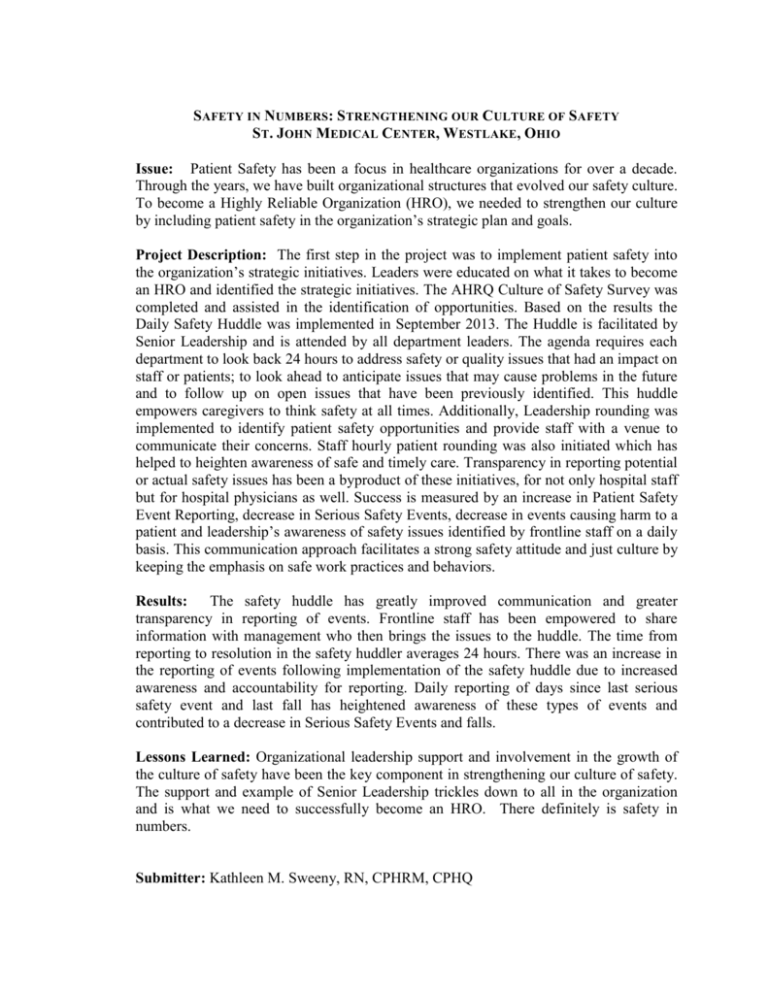
SAFETY IN NUMBERS: S TRENGTHENING OUR CULTURE OF SAFETY ST. JOHN MEDICAL CENTER, WESTLAKE, OHIO Issue: Patient Safety has been a focus in healthcare organizations for over a decade. Through the years, we have built organizational structures that evolved our safety culture. To become a Highly Reliable Organization (HRO), we needed to strengthen our culture by including patient safety in the organization’s strategic plan and goals. Project Description: The first step in the project was to implement patient safety into the organization’s strategic initiatives. Leaders were educated on what it takes to become an HRO and identified the strategic initiatives. The AHRQ Culture of Safety Survey was completed and assisted in the identification of opportunities. Based on the results the Daily Safety Huddle was implemented in September 2013. The Huddle is facilitated by Senior Leadership and is attended by all department leaders. The agenda requires each department to look back 24 hours to address safety or quality issues that had an impact on staff or patients; to look ahead to anticipate issues that may cause problems in the future and to follow up on open issues that have been previously identified. This huddle empowers caregivers to think safety at all times. Additionally, Leadership rounding was implemented to identify patient safety opportunities and provide staff with a venue to communicate their concerns. Staff hourly patient rounding was also initiated which has helped to heighten awareness of safe and timely care. Transparency in reporting potential or actual safety issues has been a byproduct of these initiatives, for not only hospital staff but for hospital physicians as well. Success is measured by an increase in Patient Safety Event Reporting, decrease in Serious Safety Events, decrease in events causing harm to a patient and leadership’s awareness of safety issues identified by frontline staff on a daily basis. This communication approach facilitates a strong safety attitude and just culture by keeping the emphasis on safe work practices and behaviors. Results: The safety huddle has greatly improved communication and greater transparency in reporting of events. Frontline staff has been empowered to share information with management who then brings the issues to the huddle. The time from reporting to resolution in the safety huddler averages 24 hours. There was an increase in the reporting of events following implementation of the safety huddle due to increased awareness and accountability for reporting. Daily reporting of days since last serious safety event and last fall has heightened awareness of these types of events and contributed to a decrease in Serious Safety Events and falls. Lessons Learned: Organizational leadership support and involvement in the growth of the culture of safety have been the key component in strengthening our culture of safety. The support and example of Senior Leadership trickles down to all in the organization and is what we need to successfully become an HRO. There definitely is safety in numbers. Submitter: Kathleen M. Sweeny, RN, CPHRM, CPHQ
